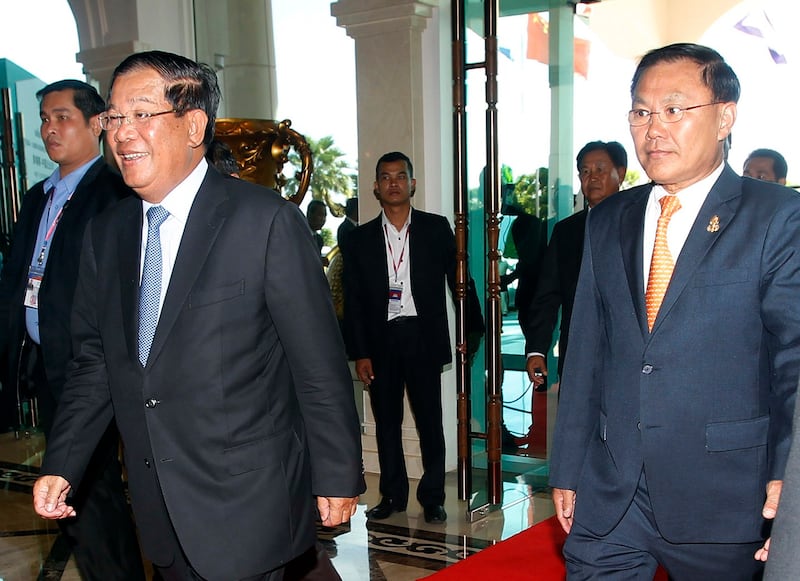Cambodia’s Foreign Ministry on Friday said that U.S. sanctions against powerful businessman Ly Yong Phat were “misleading” and “politically motivated,” adding that the casino tycoon has played a “widely recognized” role in advancing the country’s development.
The sanctions announced on Thursday by the U.S. Treasury Department's Office of Foreign Assets Control also targeted Ly Yong Phat's LYP Group conglomerate and several hotels for alleged abuses of trafficked workers at online scam centers.
Thursday’s sanctions will restrict his ability to complete financial transactions and conduct other commercial activities outside of Cambodia.
“The move, based on unconfirmed reports of forced labor linked to online investment scams, are politically motivated and run counter to the spirit of reinforcing our bilateral cooperation and mutual trust,” the ministry’s statement said.
The ministry added that Ly Yong Phat’s businesses have contributed to infrastructure development, job creation and poverty alleviation in Cambodia.

Ly Yong Phat is a member of the permanent committee of the ruling Cambodian People’s Party, or CPP, and has close ties to the family of Senate President Hun Sen and Prime Minister Hun Manet.
In addition to his casino and hotel businesses, he’s known for controlling large parts of Cambodia’s sugar industry and for having frequent land disputes with villagers.
Illegal logging
Earlier this month, the government suspended a controversial hydropower project owned by Ly Yong Phat, located inside a wildlife sanctuary, citing illegal logging.
The Sept. 2 decision by Environment Minister Eang Sophalleth said it would halt the 150-megawatt Stung Meteuk hydropower project.
“The ministry has learned that the company that cleaned the forest collected timber without permission and processed the timber without paying taxes, which is against the forest law,” he wrote in a letter to Ly Yong Phat.
RFA was unable to reach Ly Yong Phat for comment on Friday.

The Foreign Ministry's statement also mentioned U.S. Secretary of Defense Lloyd Austin's one-day visit to Phnom Penh in June, which took place days after Cambodia and China wrapped up their biggest ever military exercise.
U.S.-Cambodian relations have become strained during the past decade partly over American concerns about the suppression of Cambodia’s political opposition. During the same period, Phnom Penh and Beijing have drawn closer.
Official complicity
The ruling CPP, meanwhile, said the U.S. Treasury sanctions were “groundless and unjust” and a violation of Cambodia’s sovereignty.
The announcement cited the U.S. State Department’s annual Trafficking in Persons Report, which in June highlighted abuses at online scam centers in Cambodia and noted widespread corruption and official complicity.
RELATED STORIES
[ US sanctions powerful Cambodian casino tycoonOpens in new window ]
[ US defense secretary visits Cambodia amid concern about ChinaOpens in new window ]
[ Fears grow over illegal logging near Stung Meteuk damOpens in new window ]
The report failed “to provide a balanced and accurate representation of Cambodia’s steadfast commitment to human rights, law enforcement, and its determined efforts to combat human trafficking and forced labor,” the Foreign Ministry said.
“Cambodia has made significant strides in addressing these issues in collaboration with international partners, including the United States,” the ministry said.
Translated by Yun Samean. Edited by Matt Reed and Malcolm Foster.
